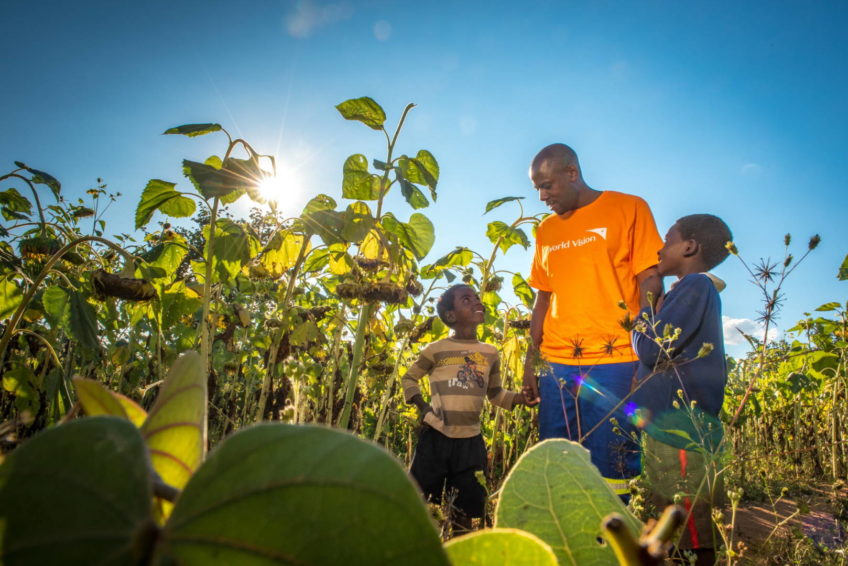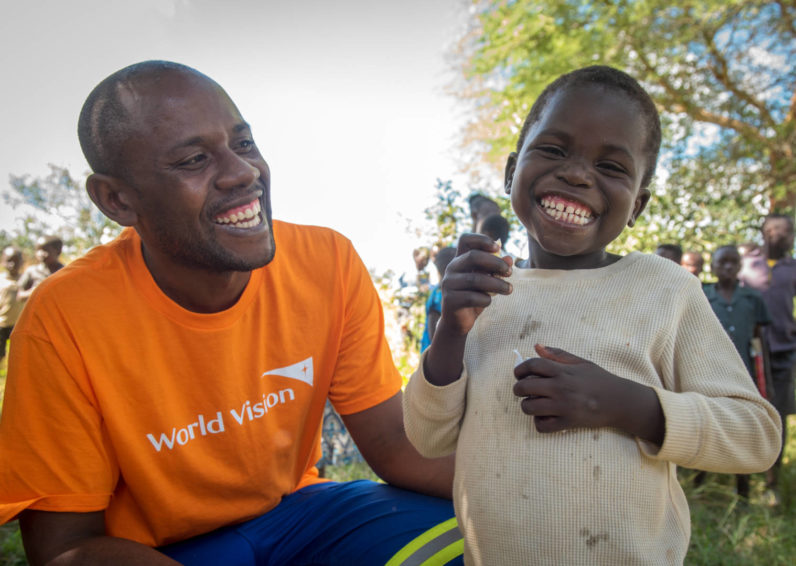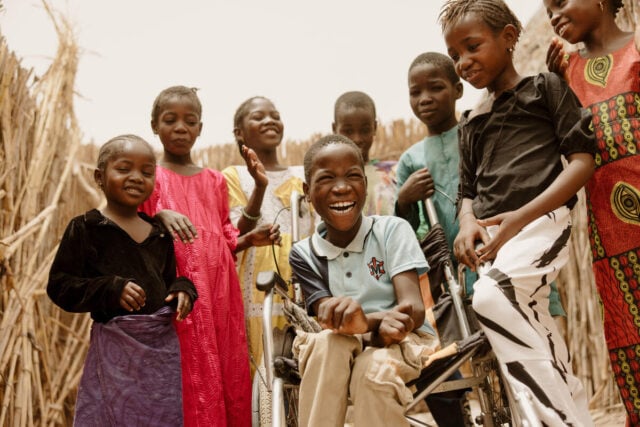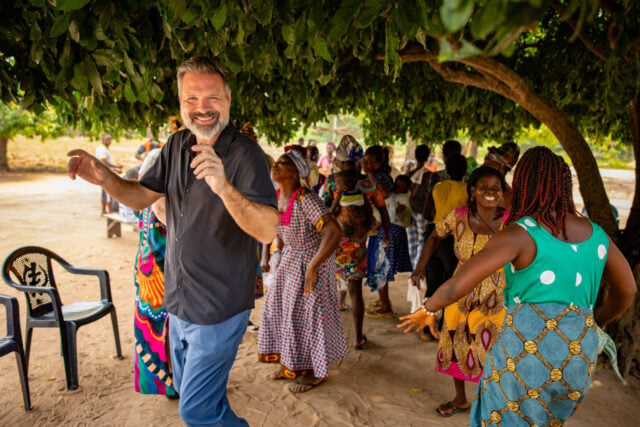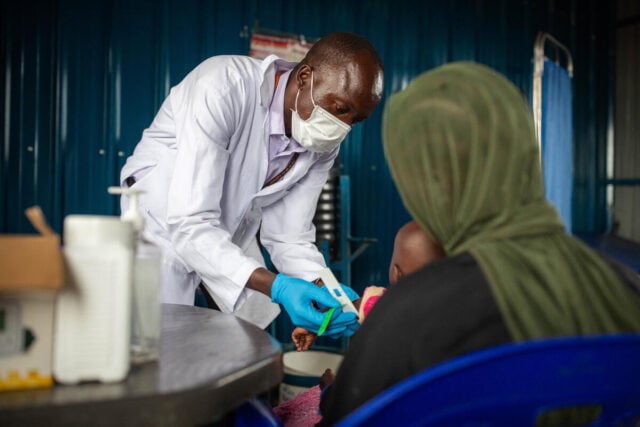The song of Matthew Sakala’s life is clearly “Happy Birthday.” On a sunny Monday in May, he has just told hundreds of eager children at a World Vision birthday party how much God loves them and how the day they were born was a special day, indeed. Matthew runs sponsorship programs in Moyo, Zambia.
This is not his first World Vision birthday party — not by a long shot.
He was sponsored by a U.S. family through World Vision when he was 8. “I used to go to birthday parties,” he says. “It brings back great memories.” The parties made child sponsorship real for Matthew. “I knew there were other people outside of where I live who were thinking about people in my community. That really touched me.” Birthday parties in communities where World Vision works are funded by sponsors through a special birthday fund. The fund ensures that children in the community know they are loved by God and their sponsors. Celebrating birthdays is not part of many cultures around the world.
“In a typical home, you would never find them celebrating their birthday,” Matthew says.
That’s why birthday parties were so special to him.
“They would give us new clothes,” he says. “It was a wonderful feeling to have new clothes.” The parties were always festive, he says. “We would dance as the music was playing.”
In Moyo, the party starts in the morning and lasts into the afternoon with singing, dancing, skits, and prayers for the children. Children eat a hot lunch of their favorite foods and receive gifts — backpacks from World Vision’s Giving Tuesday partner, Thirty-One Gifts, a company dedicated to empowering women to run their own businesses. Since 2012, Thirty-One Gifts has given more than $100 million in cash and products like backpacks to organizations that support its mission. On Giving Tuesday, Thirty-One Gifts is matching donations to World Vision with up to $2 million in product.
Matthew, who distributed hundreds of backpacks at the birthday party, wanted to work for World Vision since he was a child. “I wanted to be part of an organization that transformed the lives of children,” he says, “just as I was transformed myself.”
It really struck me when I would see the donors come and interact with the children and how much love they had for them.
—Matthew Sakala
Living with his grandparents in a poor area in southern Zambia, he watched his community grow because of sponsorship.
“One of my close friends had a sponsor who sent him money to buy four head of cattle and build a house,” he says. “The project brought a skills training area. People would go to do basic training on carpentry, plumbing, joinery, and baking,” he says. “We were touched to see what World Vision was doing.”
He saw the joy sponsors’ letters brought. “There is a direct communication between someone who is miles and miles away from them,” he says. “This attachment makes children really feel valued, loved, and cared for, even if they don’t see them.”
But it was sponsor visits that really moved him. “It really struck me when I would see the donors come and interact with the children and how much love they had for them,” he says. “I said, ‘I want to be part of this.’” At age 12, Matthew decided he would someday work for World Vision.
To prepare, he earned a certificate in social work and is working toward a bachelor’s degree in development from Zambia Open University in Lusaka, the capital. Ten years ago, he began working for World Vision, and today he is the church community engagement and sponsorship plan development facilitator for Moyo. The title is a mouthful, but it speaks to the fusion of faith and sponsorship.
“When we enter a community to talk about child sponsorship, we talk about how God views the children,” he says. “In the eyes of God, we are all children.” Matthew works with faith leaders to ensure they focus on children. “We [tell] them the story of the children who were being chased away by the disciples. But Jesus said, ‘Let them come to me.’” Churches must be part of the change, he says. “We encourage pastors during their sermon — please talk about the children.”
It’s working. “The culture that we live in is slowly changing,” he says. “It once demeaned the children. It did not allow children to flourish.”
Matthew, now a father of three, says he owes his life to child sponsorship. “I am indebted to World Vision. I don’t work for a salary,” he says. “I am World Vision.” And with that, he’s off to deliver backpacks, serve cake, and sing another round of “Happy Birthday,” the song of his life.
